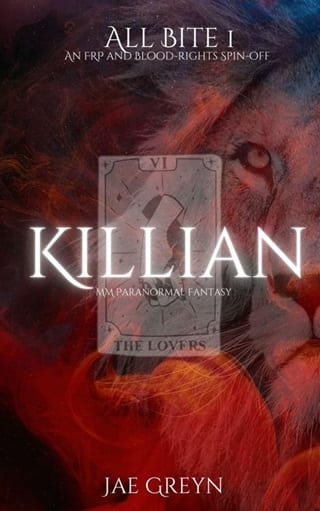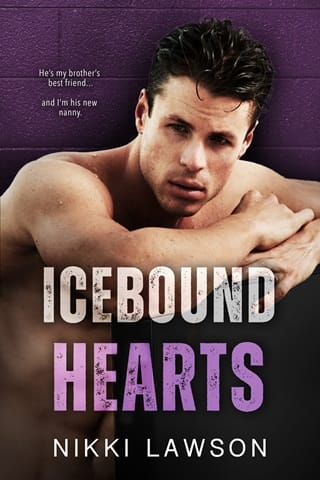Chapter Twenty-Nine
Briggs
Throughout the village of Brumbury, people have arranged their flowers, brushed down their cattle, fluffed their sheep, and organized their vegetables in preparation for the harvest festival.
And Sabrina Dixon parades through the market square in the most ridiculous and elaborate dress I have ever seen. There are bows and tassels and buttons galore.
Beside me, Uncle Richard nudges me in the ribs with his elbow. “So have you proposed to the girl?”
“Westley’s stepsister?” I ask, shedding my coat because the direct sunlight is mercilessly hot.
“The one with the dowry.”
I blink slowly and sigh. “Yes, she has a dowry. And not yet.”
As though somehow drawn to her singular fine quality, Sabrina lifts her gaze to Uncle Richard’s and joins us under the tent where several of Mistlethrush’s and Wrexford’s tenants arrange their vegetative bounty for display.
“Mr. Goswick,” says Sabrina to my uncle Richard, her white teeth practically gleaming with her wide grin. “I’m so glad you could make it all the way from London. It wouldn’t be a proper harvest festival without you.”
Like she’s ever been to one of our harvest festivals. Like she’s ever been in my uncle’s company prior to two weeks ago when we stayed in his townhouse in London after the opera and the catastrophic ball at Lady Clifford’s. I wish she’d go back to being silent.
I think Sabrina knows that what she did there has soured my feelings, however lemon-like they were to begin with. For whatever reason, she is now determined to secure my good opinion, and her flirting knows no end. Lucky for her, Uncle Richard is positively eating it up. He pats her hand comfortingly.
“Charming,” he says, as though she’s not even there. “Absolutely charming. Wouldn’t you say so, Briggs?”
I secure myself a glass of cider and take a long gulp. “Charming doesn’t even come close, Uncle,” I mutter.
“It seems as though everyone is here,” says Sabrina, looking around.
Outside our tent, families from across Brumbury gather to marvel at the feathers of chickens, the goods on the bulls, and the bountiful fruit. The late summer sun is high in the clear blue sky, and a slight breeze makes the day absolutely perfect. Well, almost.
“Unless we’re waiting for someone else…?” Sabrina stares at me with her wide blue eyes. “I don’t see the Rowleys anywhere. I’m surprised they wouldn’t come to celebrate with Wrexford Park. Rather a disagreeable decision.”
“I think you know why Miss Rowley might not wish to be in attendance.”
Sabrina clucks her tongue. “Oh, yes. That whole debacle with her duplicitous bee business. It’s a shame she couldn’t just be straightforward with everyone. I find honesty to be the most important virtue, don’t you agree, Mr. Goswick?”
Uncle Richard nods vehemently. “Couldn’t agree more, Miss Dixon.”
The blood boils all the way from my toes to my face. “Miss Rowley is not—” I start to say, but Uncle Richard coughs adamantly to interrupt me.
“Miss Dixon, could you go find your stepbrother for us?” he asks. “There’s something I’d wish to run by him, but I can’t figure out where he’s gone.”
“Of course, Mr. Goswick. I’ll be back in a snap.” Sabrina squeezes my uncle’s arm before she departs, and glances over her shoulder and smiles flirtatiously in my direction.
“You seem so fond of her, Uncle. Perhaps you should marry her,” I say into my drink.
“Don’t be funny with me, Briggs. You know that she is a fine prospect.”
“She’s not a piece of land,” I try. “She doesn’t come with lovely views of the sunset. She is a difficult girl who likes to spread gossip.”
“What woman doesn’t?”
I cannot bear his company any longer, and I’m relieved when I spot Charlotte Barlow arranging flowers. She looks so different from Blythe that I wonder how they could ever be cousins.
And there I go thinking about Blythe. Again. The idea had lingered deliciously in my imagination that Blythe would appear out of thin air at some point this past week, almost as though nothing had happened in London. But the day is almost through, and she has yet to make an appearance.
Honestly, I could look at almost anything and think about her. The table. The vast array of cabbage. The oak tree. Blythe standing under it and laughing with Westley. The pitchers of—
I revert back to the tree. There she is. I’m not imagining her. She wears a black dress strewn with an array of colorful blossoms, and her dark hair is long and draped over her shoulders with parts of it twisted away from her face, and I can just hear her laugh from where I stand.
“Something wrong, Mr. Goswick?” Charlotte asks, poking a cornflower bouquet into the vase before her. “You look as though you’ve seen a ghost.”
“Close enough,” I say. “Did you know Miss Rowley was coming?”
“Of course I did,” she replies. “She wrote to me just a week ago to confirm her attendance.”
“I should go and say hello,” I mutter absently, still staring at Blythe.
“You certainly should.”
I take a step forward only to have someone clutch my forearm and yank me back. “Mr. Goswick!” Sabrina cries. “Come here and meet my dearest friends who came all the way from Surrey for the day.”
This girl. This girl is going to destroy me. And not in the fun way. Not in the way I’d like Blythe to destroy me.
I take a deep breath through my nose as she drags me in the opposite direction of Blythe and back toward Mistlethrush Hall.
…
The afternoon drags on in similar instances. As master of Mistlethrush Hall, I’m needed for all kinds of scenarios. Judging the largest melon, being the deciding vote in a tied three-legged race, greeting guests from all over the county and beyond.
As the afternoon slips almost seamlessly into evening, I still haven’t had a chance to talk to Blythe, and she is just as popular, if not more, than I am. She is incandescent in the light of the setting sun. When we’re seated for the dinner, she is at the opposite side, the opposite end of the table, and she laughs with Julian and her sister, and Charlotte Barlow, and she laughs with several boys from the village who find her charming, of course.
Even Mr. Walker’s son, Thomas, is enamored with her.
Meanwhile, I’m sitting between Mr. Barlow and Sabrina, slowly picking at my dish of roasted pheasant. I’m trying to entertain all of the guests, some of whom came from the opposite end of the county, and of course, Sabrina’s friends who came from an entirely different county. There are so many more people here than I ever could have anticipated. All in all, a triumph. I just wish I could share the triumph with better company. Company who is standing as the musicians begin to warm up their instruments. Company who is being led by her hand (by her hand ) to where people are lining up to dance. She’s going to dance with someone who is not me. Again. At least it’s not Colchester, I comfort myself.
I lean forward toward August, who cuts into his meat. “Don’t ask Miss Rowley to dance,” I whisper.
Beside my brother, Lord Drummond watches our conversation with interest, but he’s soon distracted into conversation with Sir Anthony.
August chews methodically for a while (I know for a fact he must chew fourteen times before swallowing, otherwise, he claims, his body will not digest his food as thoroughly), and then frowns at me. “Why not? Because you’re a coward?”
“I’m not a coward.”
“You are,” August insists. “Otherwise you’d extricate yourself from your current tiresome company and go ask her yourself.” He raises his head. “Beat me to it, Briggs.”
“Beat you to what?” asks Sabrina from beside me.
I settle back into my chair and huff. “Nothing,” I mumble.
“I brought some sheet music for the musicians,” she says, reaching under her seat and producing pages of songs that would only be played in a ballroom.
“Miss Dixon,” I say as gently as I can possibly manage, “this is not the kind of event where music like that would be played.”
She stares at me incredulously. “Then how will we dance?”
Just as she poses her question, the fiddles scream into motion, and a fast jig rises up from the musicians. The dancers, the ladies lined up on one side and the men on the other, hoot and shout their approval, and they grab hands, trotting to the rhythm.
“Oh,” says Sabrina when she sees for herself. “Oh, how common.”
I turn to watch the dancing from a better vantage point, to see Blythe more clearly, to watch her take part in the revelry, and it is anything but common. It is extraordinary. She is the personification of joy and the most welcoming and humble human imaginable. My uncle could present to me a thousand Sabrina Dixons, and they could never add up to a fraction of Blythe Rowley.
No matter how sizable the dowry.
The blazing light of the torches surrounding our tent offsets her beauty, and she laughs boisterously, bending at the waist with the effort when several of the boys jumble together and throw off the dance. But she grabs her partner by the hands and guides him back to the proper steps. She claps and whirls, her skirts floating about her.
And I can’t sit here any longer. I launch from my seat as the notes of the song begin to slow.
“Mr. Goswick, what are you doing?” Sabrina asks from beside me.
“What I should have done some time ago.” I take a step, but she grabs my wrist.
“You can’t possibly mean to stand up and dance at a gathering such as this,” she says, glancing around nervously.
“I can mean just that,” I reply. “And I will.”
Her mouth drops, but at least August finds this infinitely amusing.
I pace around the outside of the dancers as they twirl and prance away from the tents and under the light of the harvest moon, of the twinkling stars.
When the song finally ends, Blythe curtsies to her partner and applauds the musicians. Charlotte comes up beside her, her arm around her cousin’s waist, and whispers something in her ear that makes Blythe bellow shamelessly with laughter. She throws her head back and clutches her stomach.
I weave my way through the dancers, past chatter and conversation, until I end up behind her. I tap her on the shoulder, and she turns, surprised, and then relieved, I think. I hope.
“You are quite the dancer, Miss Rowley,” I say, bowing before her.
The crowd around us hushes, watching with eager anticipation.
She curtsies. “Thank you, Mr. Goswick. I have been practicing for the perfect circumstance.”
“And for what circumstance were you practicing?”
With a confidence only she could possess, the kind that makes me doubt my own name, she smiles and narrows her eyes. “For the right person to ask me.”
“Then I hope I will suffice.” I offer her my open hand.
She places hers in mine. “You were worth the wait.”
My chest expands, and a grin I’ve been trying to suppress erupts across my face. I offered her my hand and she accepted. My mind buzzes with the possibility of this, of the playful gleam in her dark eyes.
The dancers around us roar and clap, and behind them, the musicians ready their instruments. When they count us in, we’re off.
The song is simple at first. A beat I recognize, steps that don’t feel too foreign, and across from me, Blythe keeps me steady, reminds me that dancing is dancing no matter where you lay your head at night. We spin to the right once, clap, to the left, clap. Come back together, hand to hand, step apart, realign, change partners, and I’m jealous of her new partner’s fingertips that brush the soft skin of the inside of her wrist where her pulse must thrum, of his ears that receive the peals of her laughter.
But it’s a temporary ache until she’s back in my arms again. I get the hang of the movement after a while, and once I’m certain of the steps, when I don’t feel so foolish, and I believe the song is coming to an end, the beat grows faster, more urgent. The other dancers whoop with joy, and the music signals for them to grow closer, hands gripped, torsos together, hips pressed against hips.
My right hand holds Blythe’s, but my other finds the small of her back, securing her against me, and for a moment we stand, watching one another’s reactions, until finally she says, “Well, are we going to dance?”
I reel her about, because the movements in this new dance are haphazard, joyful, with no structure and no rules, so it doesn’t matter if I don’t know the steps—we make them up as we go along. The notes grow wild, spewing out into the cooling night air, and as she twirls, Blythe’s hair whips against my face. She grips my shoulders, like she’s hanging on for dear life, and when the song finally comes to its eventual end, her arms are around my neck, her head thrown back in laughter.
I press my forehead against her shoulder, her ecstasy contagious, and try to catch my breath. Her hand finds the back of my neck, her fingers digging, and I want to spend my whole night like this. I can’t get close enough to her.
“I think we’ve rendered Miss Dixon speechless,” she whispers in my ear as we separate, clapping for the musicians.
“Dust could render Miss Dixon speechless,” I reply.
Blythe hooks her arms under my shoulders, her hands spread out on my back, and laughs. With the turn of her head, I’m offered the slightest wisp of the scent of her hair.
It smells like apple blossoms.
 Fullepub
Fullepub 



